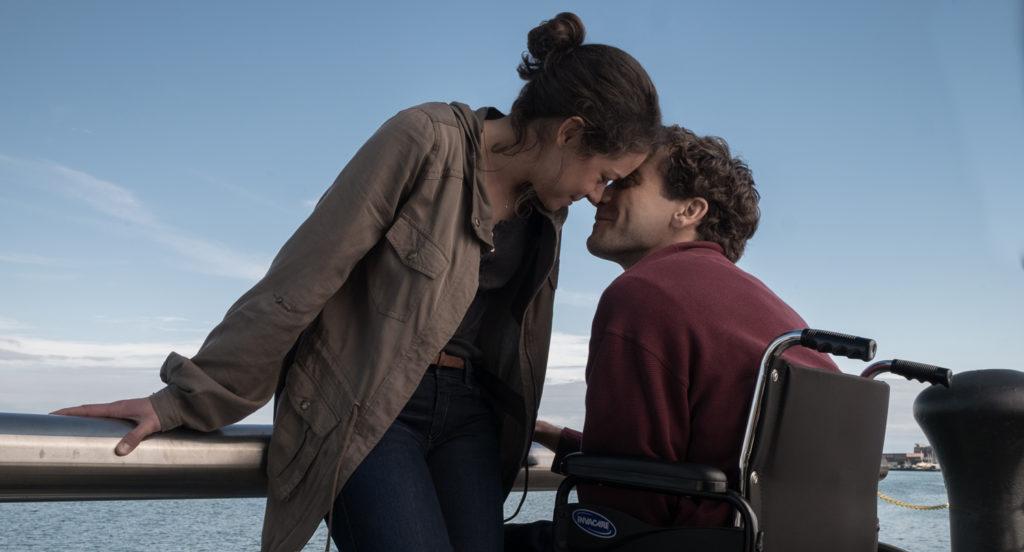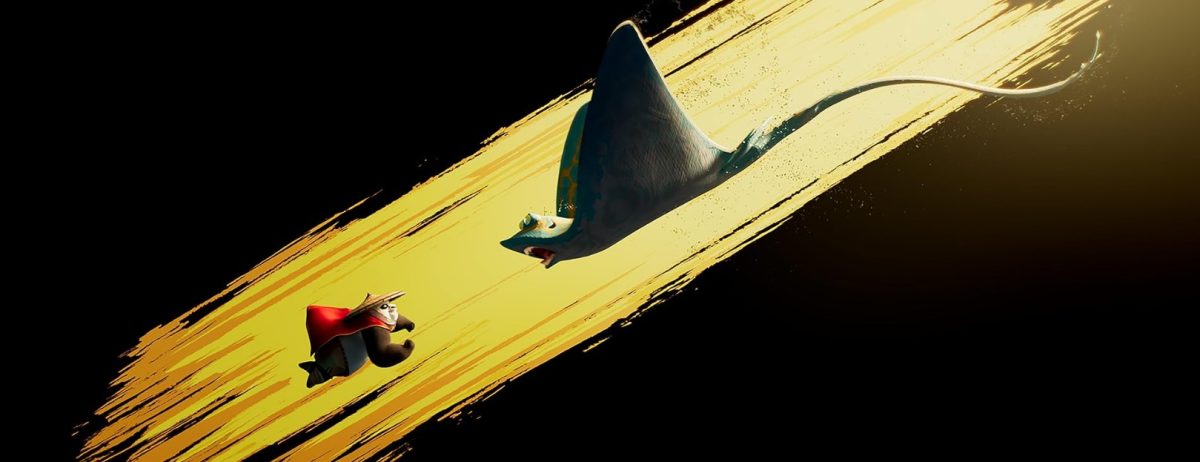
★★★★☆
On April 15, 2013, the city of Boston changed forever. What began as a day of celebration, with all eyes on the Boston Marathon, quickly turned into anguish, as two homemade bombs detonated near the finish line.
In the aftermath of the tragedy, symbols of strength emerged. One of the most iconic images from the day features a man, Jeff Bauman, being taken away in a wheelchair by a man in a cowboy hat, Carlos Arredondo. Bauman lost both of his legs in the bombing, and it is his story that is told in “Stronger,” a film based on his memoir of the same name.
Bauman, played in the film by Jake Gyllenhaal, is a sports-loving Bostonian with his heart set on winning back his on-again, off-again girlfriend, Erin Hurley, played by Tatiana Maslany. Hurley is running the Boston Marathon, and Bauman promises to be there for her at the finish line. However, tragedy strikes and Bauman is rushed to the hospital. He wakes up with Hurley and his family by his side, only to find that his legs are gone. Rather than highlighting the response to the tragedy by the city of Boston as a whole, “Stronger” focuses on Bauman’s personal story of recovery.
On Sept. 18, Gyllenhaal and Bauman joined Alex Horton of The Washington Post onstage at the Regal Gallery Place cinema for an advance screening and a discussion about the making of the film. Gyllenhaal has spent the past two years following Bauman’s daily routine to capture his spirit and perfect his Boston accent, resulting in a close bond between the two.
“I would have to say playing him and being his friend has changed my life,” Gyllenhaal said. “Making this movie is definitely the proudest I have ever been of a film in a lot of ways, in the process of making it, but also it’s been a real honor.”
The friendship between the actor and the memoirist is clearly reflected in Gyllenhaal’s authentic portrayal of Bauman. Bauman has his flaws, such as his rocky relationship with Hurley and his drinking problem, but these imperfections make him all the more relatable.
Gyllenhaal conveys this troubled character, while also maintaining a sense of humor throughout. For example, when Bauman first wakes up and he is told that his legs are gone, he jokingly references “Lieutenant Dan,” a character in the film “Forrest Gump.” Humor is what makes his situation easier to bear.
In the film, one of Bauman’s major struggles is his sudden prominence as the face of the city’s newly adopted mantra, “Boston Strong.” When he leaves the hospital, he arrives home to signs, cards and flowers from people all over the world, along with invitations to be the honorary fan banner captain at a Boston Bruins game and to throw the opening pitch at Fenway Park for the Red Sox.
With regards to the experience depicted in the movie, Bauman said his transformation from regular guy to hero was overwhelming, especially since it was something that he never asked for.
“Sometimes it’s annoying, but then sometimes it’s like, ‘Oh man, it’s pretty sweet that everyone is together in your community,” Bauman said. “I like both aspects, it’s just depending on my mood in that particular moment. Definitely having the community and everyone behind you takes you out of that isolation and makes you feel comfortable.”
The film captures these sentiments in a realistic and compelling manner by concentrating on the perspective of the man who was forced to become a symbol of resilience for an entire city. The legacy of the bombing is felt throughout the film, but by focusing on Jeff’s story, it fades into the background. “Stronger” is not a film about tragedy; it is a film about strength and renewal.
In terms of Bauman’s physical and mental struggles, the film does not hesitate to show his agony. In an instant, he loses both of his legs and has to learn how to adjust to his new life. There are some who might shy away from these scenes of trauma, but it was important for those making the film to include them.
“What was essential for me and for the filmmakers in this movie was to understand the pain or to show the pain,” Gyllenhaal said. “Stories of inspiration sometimes gloss over the idea of pain and the struggle that takes you to the inspiration, to the moment where you find some sense of joy. You cannot experience that joy without the other. We knew it was impossible to get anywhere close to what Jeff experienced, but I damn well was going to try to communicate that.”
The title of the film is fitting and suggests a question: what is it that makes one stronger?
In this film, Bauman is made stronger by those who surround him. Without a support system, he has no chance of healing.
“Everyone thinks it’s a story about me, but it really isn’t,” Bauman said. “It’s about the heroes, my heroes, the caregivers, Carlos, the first responders, the police, that were there risking their lives too. Definitely the hospital staff, my surgeon, the people that saved my life are my heroes, and I was just so proud and honored that they are in the film.”




















